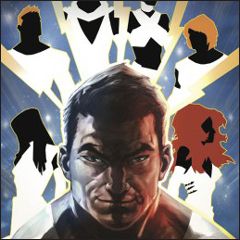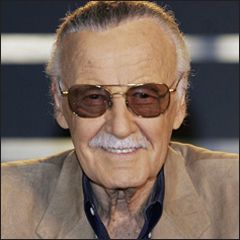Conventions | San Diego City Council on Tuesday approved the basic funding plan for the proposed $500 million expansion of the San Diego Convention Center, home to Comic-Con International. At the center of the financing scheme is an assessment district that adds between between 1 cents and 3 cents per dollar to room taxes of 224 hotels with more than 30 rooms. Those hotels closest to the convention center would be assessed an extra 3 cents per dollar, and those farthest away could be charged an extra penny per dollar.
The expansion plan has a ticking clock, as Comic-Con has signed a deal to remain in San Diego through 2015, but larger venues in Las Vegas and Anaheim have been lobbying organizers to look elsewhere. [NBC San Diego]
Piracy | I Vampire and The Last of the Greats writer Joshua Hale Fialkov wades into the ongoing digital piracy discussion, declaring, "You can’t be an asshole anymore": "Up until a few years ago, there was still enough of an audience to make up for the percentage of you who are stealing. But, not anymore. Now, everybody steals, or, at least a higher percentage of the total audience than those that pay. The comic market consists of about 200,000 people, on the high end. Now, certainly, you’ll have your Justice Leagues and Batmans and Flash’s that do amazing sales and are generating profits. But almost every other book that isn’t up there in the top 25 or so titles is almost certainly losing money. So, if I’m Warner Bros or Disney, or, in the case of Last of the Greats, ME, and I see that we’re busting our asses monthly on something that’s not only not profitable but is actually losing money, what other choice do I have but to shut it down?"
David Brothers takes issue with virtually all of Fialkov's comments, particularly his assertion that pirates are "singly responsible for ruining the comic book industry": "To put forth the idea that piracy on the part of consumers is 'singly responsible' for anything, especially when piracy by its very nature is impossible to nail down in terms of concrete numbers and cause & effect is dishonest. Bootlegs have always existed, whether in barbershops or art galleries. They’ve been here, and they aren’t going away. Do they cause harm? Any idiot knows the answer to that question is 'yes.' But for my money, the thing that killed comic books is 'everything else.' We’re living in an all-new status quo, and I keep seeing people, especially comics people, acting like piracy is the sole cause of all their ills. When no, that isn’t true, and a half glance at the world will tell you so." [Joshua Hale Fialkov, 4thLetter!]
Creators | Stan Lee reflects on his 70-year career and discusses the way comics have changed in his lifetime, breaking with the Comics Code, and how to create strong characters: "One of the keys is, and it may sound funny, talking about characters with super powers, but one of the keys is to make your characters as realistic and believable as possible. Even if they have super powers, you say to yourself, 'Well, if somebody had a super power like this, what would his life be like? Wouldn't he still maybe have to go to the dentist or wouldn't he have to worry about making a living? What about his love life?' You've got to make characters that your reader can believe exists or might exist." [IGN]
Creators | Brian Wood continues to make the rounds about his newest projects, The Massive and Conan, as well as the two ending at Vertigo, Northlanders and DMZ. [The Weekly Crisis]
Comics | Stumptown Trade Review lists seven things "independent comics did first," including the graphic novel, the omnibus and Web-direct distribution to consumers. [Stumptown Trade Review]
Comics | Cyriaque Lamar looks back at the half-man, half-woman villain He-She, "the most cunning, the most vicious, the most fiendish killer of all time." [io9]
Digital comics | Johanna Draper Carlson looks at Marvel's digital offerings (via its app and comiXology) and isn't impressed with the price or the presentation. [Comics Worth Reading]




